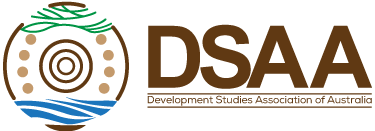Bill Walker
This is the second post in a three-part series on the pedagogy and praxis of Paulo Freire. Part 1 https://www.developmentstudies.asn.au/2021/09/21/paulo-freire-marking-the-100th-anniversary-of-his-birth/ marked the 100th anniversary of his birth with a brief outline of his life and thinking.
Lifelong learning is important not only in development studies but for people living in poverty and illiteracy. For the latter, who included Freire himself (see my blog Part 1), lifelong learning is essential. Freire’s own commitment to lifelong learning enabled him to escape poverty – as it has done for millions of other people. This commitment was evident in his continued quest to ‘reinvent’ the emancipatory praxis he first learnt in the 1940s from impoverished communities in north-east Brazil. Also prompting Freire’s reinvention of praxis were his learned recognition that markedly different dominant ideologies and contexts demanded new ‘cultural syntheses’ for transforming different ideological systems and structures. So, to understand and critique Freire, it is important to realise his praxis arises not only from own unfolding story influenced by differing geographical and ideological contexts over his lifetime but also his engagement with numerous interlocutors in them, through whom he continued to learn.
More than a few critiques of Freire fall short because they treat his works in isolation, incompletely or indirectly. Others dilute and damage his thinking and thus fail to do justice to it. Not uncommonly, such critiques fail to take seriously the kinds of contexts with which he engaged and from which he developed his praxis (Bhattacharya 2011). These contexts were often politically authoritarian, culturally collectivist and colonised. Unsurprisingly, attempts to apply his body of work in doctrinaire fashion beyond these contexts invite mixed outcomes and even disappointment.
Many are aware of his most famous book of praxis, ‘Pedagogy of the Oppressed’ (1970). Yet while it is seminal for understanding Freire, it is a mistake to treat it as the climax of his praxis. Rather, if we are to first understand Freire on his own terms and in his own time, we should treat this ‘Pedagogy’ as spotlighting his earlier core understandings, and to further illuminate these, using his later and earlier writings. I’ve found a similar approach for critiquing and learning from his other writings tends to be fruitful. Given this ongoing process of reinvention through discovery and dialogue, into which Freire invited others over more than fifty years, it is unrealistic to expect him to mirror our own twenty-first century assumptions.
A core of Freire’s praxis apparently remained consistent throughout his life. For example, amid continuing processes of emancipatory reinvention and animated by his Christian humanism, Freire consistently sought the same ends: to rehumanise core socio-political processes, thus democratising power at all levels of society – including structures, ideologies and knowledge, institutions and relationships underpinning them. Meanwhile, changes in the means Freire discovered to achieve these ends in different historical contexts are reflected in shifts in his thinking. It seems that Freire grew in his appreciation of the underlying causes of oppression, over time and in different contexts.
Reflecting such growth, Morrow (2019) identifies three phases in Freire’s life: his earliest phase, in Brazil, where he learnt from marginalised groups how to peacefully humanise the impact of authoritarian military regimes on these groups, from the bottom upwards; his second phase, following exile, where he supported top-down experiments with Marxist revolution during the Cold War (e.g. see Freire 1978) which were markedly less successful than those in North-East Brazil; and his third and last phase, as the Cold War abated, when he deeply embraced radical democracy (e.g. see Freire and Freire 2007). In his response to major changes in his life and the wider world, it is evident that he recognised and promoted somewhat different processes to change institutional systems and structures, and that he expected quite different outcomes (Morrow 2019).
Thus, for example, the ending of Cold War conflict, growing ecological crises and the rise of globalisation, feminism and neoliberalisation which emerged globally in the last 15 years of his life prompted him in response to reinvent his earlier revolutionary praxis and pedagogy. By tracing Freire’s own reinvention in the last major, but unfinished phase of his writing, Morrow shows how Freire embraced radical democratisation – both as a set of processes seeking human emancipation from domination, and as an outcome. To help realise such democratisation and as reflections learning from his earlier praxis, Freire’s last works included a series of democratising pedagogies, including an (unfinished) ecopedagogy.
Freire invited his audiences to treat his unfinished work as open-ended. He urged us to critically reinvent his pedagogies for contemporary contexts, such as those of our own increasingly authoritarian world. As I’ll explain in my third and last piece in this series, this requires shared understanding, which arises by co-experimenting with and thus extending his unfinished body of praxis, using participatory action research methodologies to generate actionable knowledge. I’ll suggest how Freire’s works and praxis, ‘read’ in such ways, and matched to context, enable democratic transformation because they can stimulate the kinds of shared learning conducive to more people-centred policies and practice.
References:
Bhattacharya, Aske. “Critique of Paulo Freire’s Major Works,” Pages 173-282 in Paulo Freire: Rousseau of the Twentieth Century. Rotterdam: Sense Publishers, 2011
Freire, Paulo, Pedagogy of the oppressed. Continuum books. New York: Seabury Press, 1970.
Freire, Paulo, Pedagogy in Process: The Letters to Guinea-Bissau New York: Seabury Press. 1978.
Freire, Paulo, and Ana Maria Arau jo Freire, Daring to dream: Toward a pedagogy of the unfinished. Boulder, CO: Paradigm Publishers, 2007.
Morrow, Raymond Allen. “Paulo Freire and the “Logic of Reinvention”,” Pages 445-461 in The Wiley Handbook of Paulo Freire. 2019.
